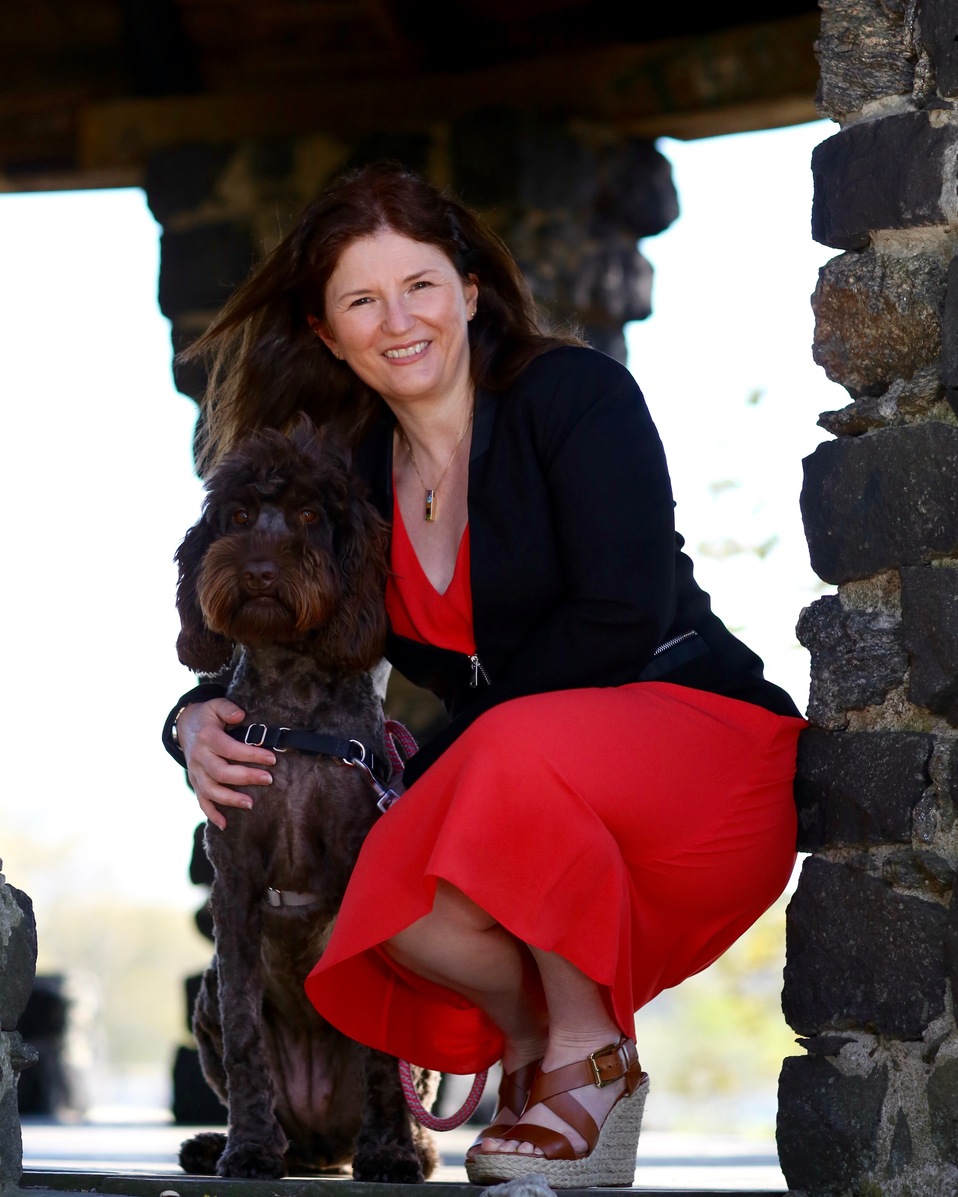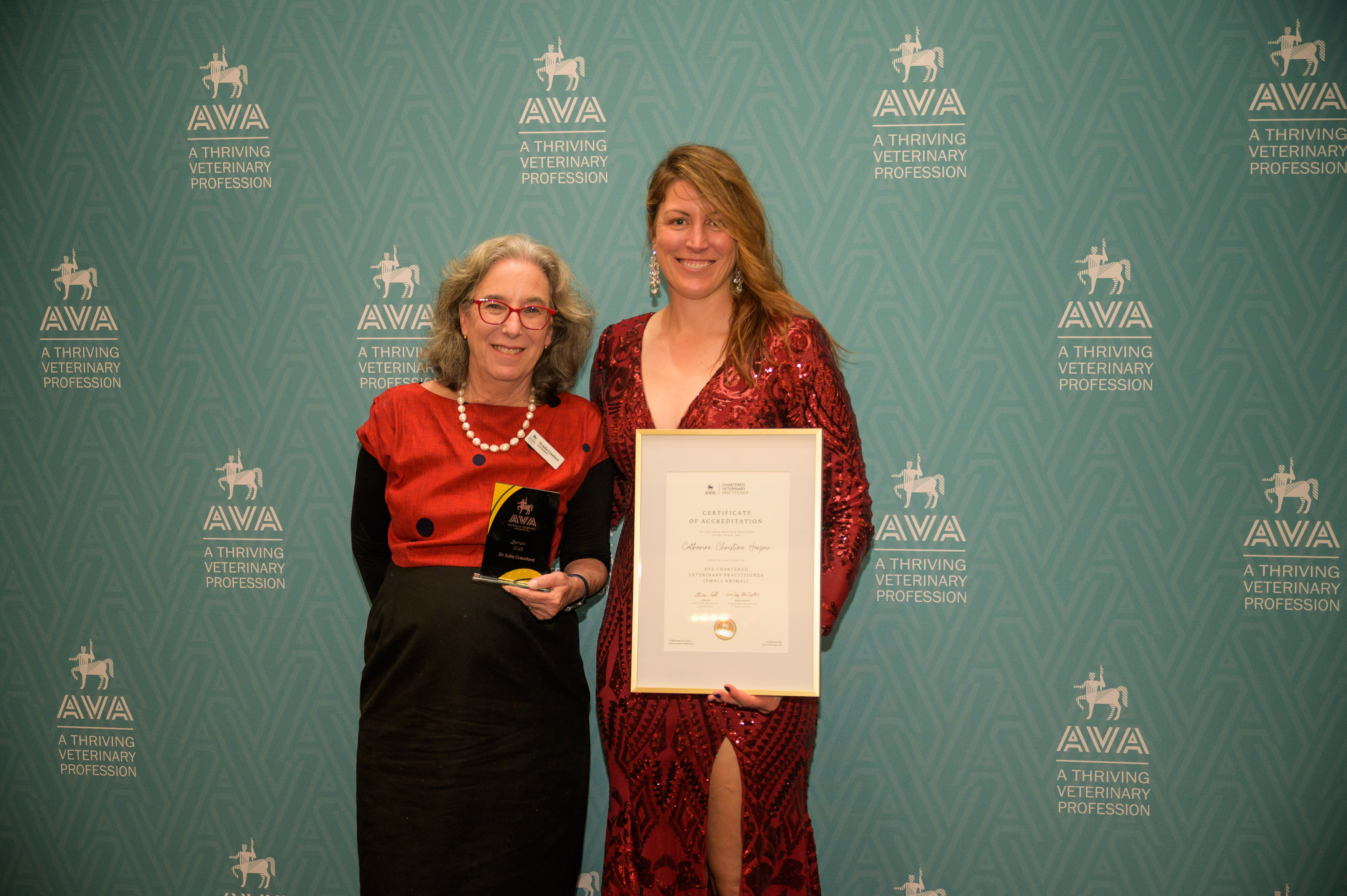A new chapter for the AVA Chartered Veterinary Practitioner: Dr Cheryl Fry appointed academic program director
19 Jun 2025
AVA CVP Academic Program Director Dr Cheryl Fry
The AVA is proud to announce the appointment of Dr Cheryl Fry as the new academic program director for the AVA Chartered Veterinary Practitioner (AVA CVP) program. A longstanding contributor to the program, Cheryl brings clinical experience, educational insight, and a passion for veterinary wellbeing and lifelong learning.
Her appointment comes at an exciting time for the AVA CVP, as the program not only continues to evolve in response to feedback from students, but also reaches a major milestone: the awarding of first AVA Chartered Veterinary Practitioner accreditation to Dr Catherine Harper.
Enrolments are now open to study The Veterinarian's Role in Society commencing Monday 25 August 2025. Find out more here.
Built for practice, backed by evidence
The AVA CVP was created specifically for Australian small animal veterinarians with clinical experience who are looking to deepen and expand their knowledge and skills across the many facets of general practice.
Both the clinical and non-clinical courses aim to focus on the common challenges faced by general practitioners and how to practically manage these, while also highlighting what’s new in each field of study.
“We had expected interest mainly from small-animal veterinarians,” says Cheryl, “but quickly discovered that the program appealed to clinicians in mixed practice too.”
“Being 100% online, the program suited veterinarians in remote locations looking to enhance their small animal skills. The courses also provided opportunities for regional and rural practitioners to connect with colleagues and build a support network.”
As it stands today, the program is slightly different from the initial offering and is now open to any Australian registered vet who wants to refresh or update their clinical and professional skills.
“We listen to our student and lecturer feedback and seek to improve the student experience with every iteration,” Cheryl explains. “You can expect some exciting changes to our 2026 course catalogue – all in response to feedback and consumer demand.”
Celebrating our first accreditation
The program’s credibility has been underscored with the awarding of its very first AVA CVP accreditation in 2024, demonstrating the AVA CVP pathway is both achievable and impactful for vets who want to further their professional development in a meaningful way.
“All of us involved in the development and delivery of the AVA CVP are thrilled to celebrate this milestone and to recognise the dedication, effort and professionalism it represents,” Cheryl says. “Dr Harper has truly embraced what the AVA CVP stands for – ongoing learning, clinical excellence, personal growth and a deep commitment to the veterinary profession.”
New flexibility: course options that fit
A major update to the program is the introduction of individual course enrolment options. Veterinarians can now choose to complete stand-alone courses that suit their specific interests or needs without committing to the full accreditation program from the outset.
Vets who do choose to complete the requirements of the accreditation program will be eligible to apply for the AVA Chartered Veterinary Practitioner designation, which comes with postnominals and has been designed to become a benchmark of excellence in small animal general practice.
A faculty of experts who understand practice
A defining feature of the AVA CVP is its highly qualified faculty, who blend academic excellence with practical experience.
“We aim for our educators to have post-graduate qualifications in their field of expertise, along with small animal clinical experience where applicable,” says Cheryl. “Most of our current lecturers in the clinical subjects are registered specialists in their chosen field.”
Relevance to everyday veterinary work is key. While many of the lecturers are specialists, content is designed to support the needs of general practitioners, including those in rural or resource-limited settings.
“The content is realistic and practical for general practitioners to utilise every day in their workplaces,” Cheryl explains. “There is no assumption that a clinic has all the latest gadgets, or access to a nearby referral hospital.
“To maintain relevance to the profession, our non-clinical subjects such as building wellbeing and stress management, are taught by lecturers who have worked as small animal veterinarians and additionally, have postgraduate training in wellbeing science.”
Designed for busy lives
Understanding that veterinarians juggle demanding workloads, the AVA CVP is structured with time efficiency in mind. Each weeklong module is designed to take an average of six to eight hours to complete, with short video lectures, readings, practical learning activities, and online discussions all part of the learning journey.
“The lectures are kept short (about 15 minutes long) to enable people to fit them in during breaks in their day,” Cheryl says. “All the required content is available in one place ... with a module checklist for people to work through.”
This structured approach helps students clearly see what needs to be done and allows them to plan around work and home commitments. Optional ‘deep dive’ content is also available for those who wish to explore topics in more detail.
Catch-up weeks have been built into courses to give students the opportunity to complete assignments or simply pause and reset.
“We are very aware of the unexpected turns that life can take, and we always work with students to support them in those circumstances,” Cheryl adds.
Peer connection that goes beyond CPD
One of the most powerful elements of the AVA CVP is the community of learners it creates. Peer engagement is an important element of the learning experience, particularly during the live Zoom sessions held every two to three weeks.
Cheryl has seen this occur firsthand: “A lovely thing to see has been the connection that builds with our cohorts during the live Zoom sessions. We create a safe space for people to share their challenges and successes.”
Veterinarians – particularly those working in rural or isolated roles – often find great value in developing these professional connections.
“Our regional and rural students benefit from having colleagues to share ideas with and bounce ideas off, in a collegiate space,” she continues. “I believe that the learning that occurs between the students during these live sessions is powerful, and a point of difference for this program.”
What’s next for the AVA CVP?
Looking ahead, the AVA CVP designation is expected to be increasingly recognised as a mark of excellence and well-rounded clinical capability.
“If I look into the future, I see the AVA CVP accreditation being associated with all-around excellence in small-animal practitioners,” says Cheryl. “Those who go through the entire program will have completed extensive, evidence-based further study in all the facets that have been identified as important in veterinary career success –both clinical and non-clinical.”
Graduates will emerge as highly employable practitioners – confident, connected, and ready to thrive in general practice.
Looking forward
With the first graduate now paving the way, Cheryl stepping into the role of academic program director, and a refreshed 2026 course catalogue in development, the AVA CVP is entering an exciting new chapter.
Whether you’re ready to commit to the full program or are interested in enrolling in a single course that aligns with your goals, the AVA CVP offers a high-quality, practical, flexible and rewarding path for professional growth.
Learn more about the program and explore course offerings at:
www.ava.com.au/AVA-Chartered-Veterinary-Practitioner/

ASAV President Dr Julia Crawford (left), with Dr Catherine Harper, the first accredited AVA Chartered Veterinary Practitioner, 2025 AVA Awards
